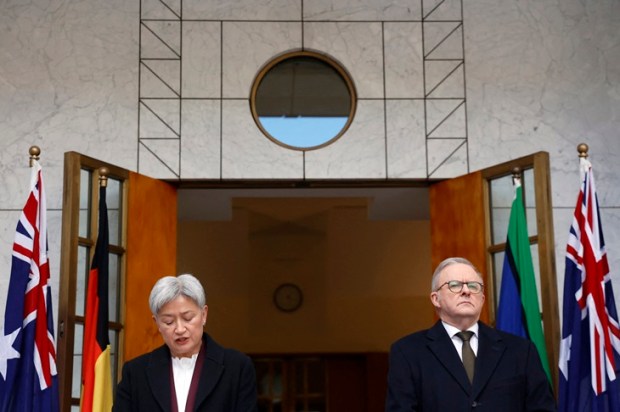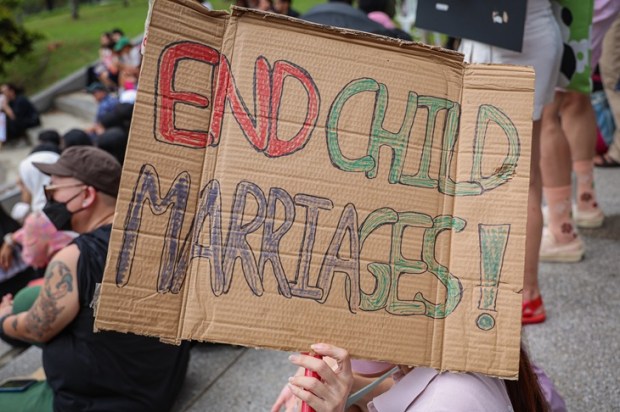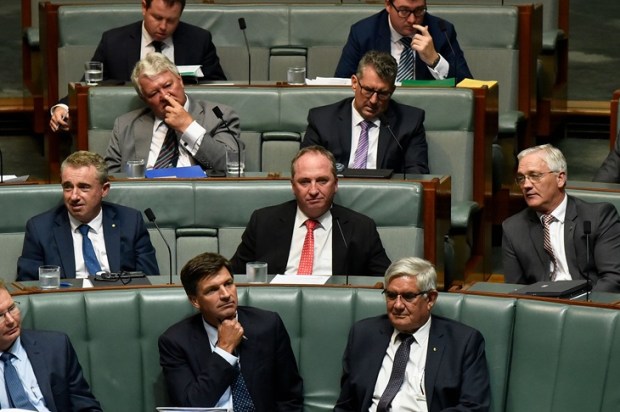The Australian Human Rights Commission recently published a report entitled Collateral Damage: What the untold stories from the Covid pandemic reveal about human rights in Australia. The report is based on a quantitative analysis of 3,032 surveyed participants, over 2,300 stories submitted to a dedicated portal, and discussions with 56 focus groups
The Human Rights Commissioner writes in the foreword to the report, published in March 2025:
‘There were many things that Australia got right in our pandemic response. Australia’s overall Covid mortality rate was relatively low from a global perspective and our economic performance during the pandemic was comparatively strong … but that human rights were not always considered or protected.’
The ‘methodology’ section discloses that work on the report began ‘with a desktop review of relevant literature (including academic articles, reports, Australian Human Rights Commission materials, relevant inquiry reports, and newspaper articles’.
On the surface the report is thoroughly researched: it has 634 footnotes which convey the impression that the research is detailed, comprehensive, and impeccable. However, even a cursory review of the report reveals that none of our articles and books on the Covid pandemic rate a mention. Yet, during the pandemic, we have authored, either individually or collaboratively, numerous academic articles, opinion pieces, and (academic) books on the government’s response to the spread of the virus. Most of our articles and opinion pieces were published in The Epoch Times, Quadrant (both Online and Hard Copy Versions), and The Spectator Australia. Connor Court Publishing published our books. Among our publications are the following:
- Augusto Zimmermann and Joshua Forrester, Fundamental Rights in the Age of Covid, Connor Court Publishing 2020 (with contributions by Rex Ahdar, James Allan, Morgan Begg, David Flint AM, Gabriël Moens AM, Anthony Gray, Rocco Loiacono, William Wagner, and many other authors).
- Gabriël Moens, ‘The role of the State in the Protection of Public Health: The Covid Pandemic’, in Fundamental Rights in the Age of Covid (The Western Australian Jurist, Vol 11), Augusto Zimmermann and Joshua Forrester eds, Connor Court Publishing, 2020, 183-201.
- Augusto Zimmermann & Gabriël Moens, ‘Emergency Measures and the Rule of Law,’ vol LXV, No 10, Quadrant, October 2021, 65-75
- Augusto Zimmermann and Gabriël Moens AM, Emergency powers, Covid Restrictions & Mandatory Vaccination: A Rule of Law Perspective, Connor Court Publishing, 2022.
- Augusto Zimmermann & Gabriël Moens, ‘The Harm Done Demands a COVID Post-Mortem’, Quadrant Online, 26 May 2023.
In disregarding our publications, it is our opinion that the report reveals its failure to professionally conduct its ‘desktop’ research and discloses a proclivity to favour publications that subscribe to the government’s preferred Covid narrative. As such, it largely avoids any direct criticism of oppressive government practices that caused so much misery during the pandemic.
The oversight appears to snub our contributions which the Commission certainly would have found during its ‘desktop’ exercise. Its failure to mention the existence of our work is even more astounding because these articles and books deal with the protection of fundamental human rights during the pandemic years – the topic the report purports to address. Hence, the report is the untold story of the Covid pandemic in more than one way!
The Commission’s report did not just disregard our publications. The contributions of other Australian leading experts and critics of the government response to the pandemic, for example, Professor Robert Clancy, Professor James Allan, Professor David Flint, Dr Julie Sladden, and others also appear to have been overlooked. As such, the report is skewed to favour the unpalatable actions of oppressive governments.
The report’s 16 recommendations are motherhood statements. The most important recommendation is to embed fundamental human rights in emergency response decision-making from the outset (recommendation 1a). However, this is neither required by the International Covenant on Civil and Political Rights nor necessarily a realistic prospect. The Commission fails to realise that emergency responses are often conveniently used to justify egregious violations of fundamental human rights. Indeed, although the report recognises ‘the significant impact that emergency powers and restrictions can have on people’s lives’, it fails to acknowledge the undeniable fact that emergency powers are instruments of demonstrable concentration and increase of governmental power, used by authoritarian governments as a means of justifying the suppression of human rights. The Human Rights Commissioner promisingly admits that, ‘Such powers should never be normalised, and their exercise needs to be rigorously scrutinised and reviewed once the emergency has passed.’ Nevertheless, it is interesting to note that this statement implies that rigorous scrutiny and review of the government’s actions should only proceed ‘once the emergency has passed’, hence, after horrific violations of human rights may already have occurred. Of course, it does explain why the Commission recommended embedding human rights in any decision to declare an emergency.
What is most infuriating is that the Commission published the report five years after the outbreak of the pandemic. If, as argued in the report, human rights are important in emergencies and must be embedded in relevant emergency legislation or practices, the Commission should have been proactive from the beginning of the pandemic. It appears that the idea that human rights are important in emergencies only came to it now, conveniently when the emergency has passed.
This is simply disgraceful: the Commission was nowhere to be found when society needed its involvement the most. It is easy now to pacify the Covid critics when everyone is trying hard to forget what happened in those dreadful years of government oppression: border closures, lockdowns, restrictions on movement, school closures, vaccine mandates, mask mandates, stranded people overseas, aged care neglect, rationing of essential goods, suspension of services, oppressive actions of politicised police forces, demonisation and deregistration of doctors who granted dispensations, domestic and family violence, adverse impact on the education of children and the rise of the Zoom-culture, and the development of a dobbing-in culture, among other horrors and deprivations.
One of the authors of this article (Professor Moens) recalls a confronting telephone call from 2020 with the Health Department of Queensland. He and his wife wanted to have a Pfizer vaccine which they perceived to pose a lower risk of side-effects. For 15 minutes, a young man, who did not want to answer his questions or address his concerns, berated and harangued him. The Department’s operative just barked at him, insisting he could not have Pfizer. He could only have Astra Zeneca: take it or leave it.
We note with considerable apprehension the statement that, ‘There were many things that Australia got right.’ We could here recycle some of our books and articles to entirely dismiss this contemptible claim, but suffice to say that, during the Covid pandemic, Australia’s governments arbitrarily abused their powers to excessively coerce, obstruct, or otherwise unreasonably interfere with the life, liberty, movement, and property of the Australian people.
These governments in Australia exercised ‘emergency powers’ to impose draconian measures that profoundly undermined fundamental human rights by coercing, scaring, threatening, misinforming, and punishing their own people. Governments often adopted extra-constitutional measures, that greatly undermined the constitutional principle of equality before the law, as well as the constitutional right to object to any form of compulsory pharmaceutical treatment, including vaccine mandates. These mandates, indeed, were unconstitutional though arbitrarily enforced either directly, by coercive measures, or indirectly, by distributing burdens and benefits on the ground of the person’s vaccine status.
The responses of the Australian governments (federal and state) to Covid significantly harmed the enjoyment of fundamental rights and freedoms. The fact that a human rights commission is unable to state this obvious fact is disgraceful because it does not recognise that powers were exercised on a scale never previously attempted, not even in wartime when Australia faced a crisis far more serious than Covid. In all this, the Australian Human Rights Commission stood completely silent, thus tacitly endorsing draconian measures that consisted in the worst violations of fundamental human rights in Australia’s history.
The Australian Human Rights Commission, therefore, is a toothless tiger who at crucial times watched on silently during the government’s overreach. Nobody needs a commission that so miserably failed to protect the basic rights of Australians when they needed it the most. Because it failed Australia so abysmally at the time of need, such a commission revealed its inability to address gross human rights violations and, therefore, it should be abolished.
Gabriël A. Moens AM is an emeritus professor of law at the University of Queensland and served as pro vice-chancellor and dean at Murdoch University.
Augusto Zimmermann is a professor of law and served as associate dean at Murdoch University. He is also a former commissioner with the Law Reform Commission of Western Australia.
Zimmermann & Moens are the authors of The Unlucky Country (Locke Press, 2024).

























